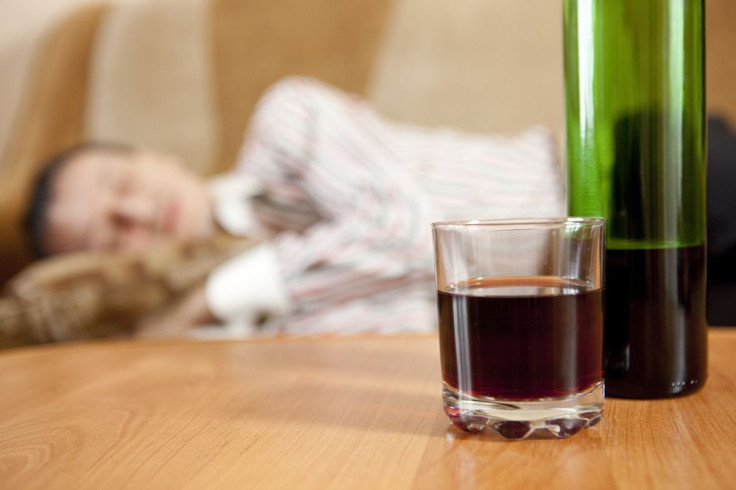For A Good Night's Sleep, Free From Chronic Insomnia, Cut Down On Alcohol

Knocking a few back before bed may be an easy way to fall asleep, but a recent study suggests that in the long run it can actually do the exact opposite and cause insomnia. That’s because alcohol messes with our body’s internal chemical balance, and too much of the good stuff too often will interrupt your body’s ability to determine when it’s time to rest and when it’s time to be active.
Researchers at the University of Missouri in Columbia have been studying the relationship between sleep and alcohol consumption for around five years, Medical News Today reported. Although many believe that alcohol makes you drowsy because it alters the body’s internal clock, the team proved otherwise.
According to lead researcher Dr. Mahesh Thakkar, in their study, the team "discovered that alcohol actually promotes sleep by affecting a person's sleep homeostasis, the brain's built-in mechanism that regulates your sleepiness and wakefulness."
In their research, they observed that alcohol consumption in mice boosted their extracellular levels of adenosine. This hormone regulates our periods of wakefulness. When the levels go up, it blocks the wake-promoting cells in our brain and makes us drowsy. The levels recede as we sleep, causing the block to be lifted. This explains why consuming alcohol can make you sleepy.
When the alcohol is taken away, however, insomnia soon sets in.
"During acute alcohol withdrawal, subjects displayed a significant increase in wakefulness with a reduction in rapid eye movement and non-rapid eye movement sleep. This caused insomnia-like symptoms and suggests an impaired sleep homeostasis," said Thakkar, as reported by Medical News Today.
The study also found that although alcohol made falling asleep easy, it made staying asleep particularly difficult.
"Alcohol disrupts sleep and the quality of sleep is diminished," he added. "Additionally, alcohol is a diuretic, which increases your need to go the bathroom and causes you to wake up earlier in the morning."
While alcohol’s sleep-inducing effects are indisputable and around 20 percent of the adult population use alcohol to help them fall asleep, the researchers concluded that it does not make a proper sleep aid.
The Sleep Foundation reports that occasional insomnia or having trouble falling or staying asleep, affects around 48 percent of Americans, but around 22 percent experience the problem nearly every night.
"Talk to your doctor or a sleep medicine physician to determine what factors are keeping you from sleeping. These factors can then be addressed with individualized treatments," Thakkar advised for those experiencing trouble sleeping.
Source: Thakkar MM, Sharma R, Sahota P. Alcohol Disrupts Sleep Homeostasis. Alcohol. 2014.



























